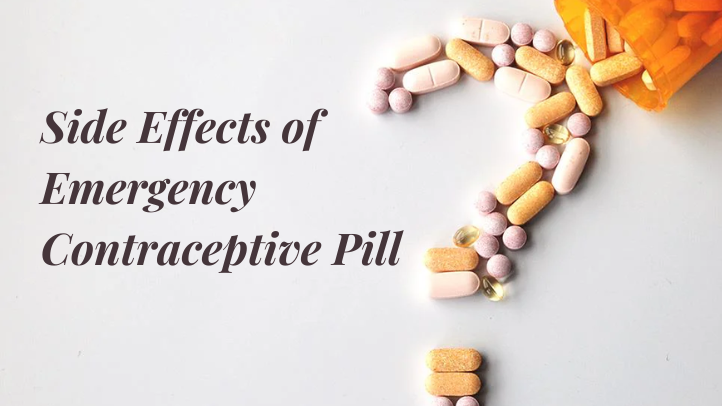
What is an Emergency Contraceptive Pill – Emergency contraceptive pills (ECPs), often referred to as “morning-after pills” or “post-coital contraception,” are medications taken after unprotected intercourse or contraceptive failure to prevent pregnancy. They work primarily by preventing or delaying ovulation, inhibiting fertilization, or interfering with the implantation of a fertilized egg in the uterus. ECPs are not intended for routine use as a primary method of contraception but are meant for occasional emergencies. It’s important to note that they are not effective in terminating an established pregnancy.
It is a type of contraception that can be used in emergencies, when typical contraception has not been used, has failed, or in the event of non-consensual sexual intercourse (rape). It contains synthetic hormones, usually a combination of estrogen and progestin or only progestin, that prevent ovulation, thicken the cervical mucus to prevent sperm from moving, and thin the endometrium to prevent implantation. If taken correctly, usually once a day at a time, it is very effective in preventing pregnancy.
If you plan to take the morning-after pill, you should know about the side effects here. Although common complications of emergency contraceptive pills are short-lived and usually disappear within a few days, they usually affect hormones and menstruation within a few cycles. Common side effects of morning pills are similar to those of birth control pills. If they last longer, seek medical assistance as early as possible.
Below mentioned are the common side effects of emergency contraceptive pills:
The fact is that the dose of hormones in ECP is significantly higher than something that can be used daily, such as daily contraceptive pills (conception pills). As a result, people who overuse ECPs may experience effects on their menstrual cycle – their periods may not return to normal, they may experience heavy bleeding or periods irregularity, etc. They may also notice weight gain and so on. ECP is not recommended for long-term contraception or as a substitute for regular contraception. It would never be a good idea to use emergency contraceptive pills that replace regular contraceptive methods such as condoms, pills, and intrauterine devices (IUDs).
Here are two main kinds of contraceptive pills:
Choosing the right ECP emergency contraceptive pill depends on individual health factors, lifestyle, and preferences and is best discussed with your healthcare provider.
Emergency contraceptive pills (ECPs) prevent pregnancy by preventing ovulation, the release of an egg from the ovary, and thus fertilization by sperm. They can also affect sperm function and make it difficult for the sperm to reach the egg or prevent fertilization by changing the cervical mucus. Some ECPs can also change the lining of the uterus, which can reduce the chances of a fertilized egg implanting. However, their main mechanism is to prevent ovulation. For the best effect, it is very important to take ECPs as soon as possible after unprotected intercourse. Although they provide a backup option in emergencies, they are not as reliable as regular birth control methods and should not be relied upon as a primary method of birth control. Regular contraceptive methods, used consistently and correctly, provide more reliable protection against unwanted pregnancy.
The effectiveness of emergency contraceptive pills (ECP) varies according to factors such as timing, type of pill, and individual differences. In general, ECPs can reduce the risk of pregnancy if taken within 72 hours of unprotected intercourse but are most effective if taken as soon as possible. Levonorgestrel-based pills like Plan B One-Step are about 95% effective when taken within 24 hours and become less effective over time. Ulipristal acetate pills such as Ella remain effective for up to 120 hours after intercourse and may be slightly more effective. However, no ECP provides 100% protection against pregnancy or sexually transmitted infections (STIs). Regular birth control methods are more reliable at preventing pregnancy, so using an ECP should be a backup plan, not the primary method of birth control. Consultation with a healthcare provider about personal contraception is essential to making informed decisions.
Emergency contraceptive pills (ECPs) provide a vital option for preventing unintended pregnancies after unprotected intercourse. However, a healthcare professional advice is highly recommended before the use of ECPs. Additionally, to mitigate the risk of unintended pregnancies reach out to highly recommend Dr Ruchi Rai Ahuja, the best gynaecologist in Chandigarh.
Copyright © 2025 Dr Ahuja Clinic. All Rights Reserved | Marketing by : WebHopers
Website Design by CSW Technologies